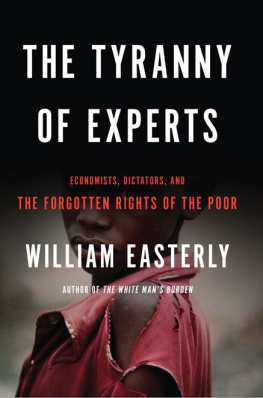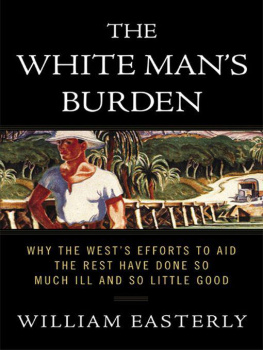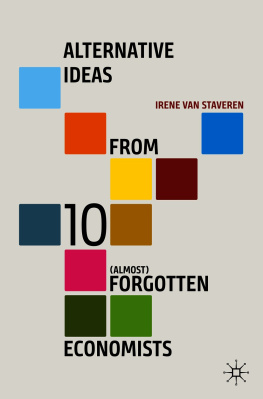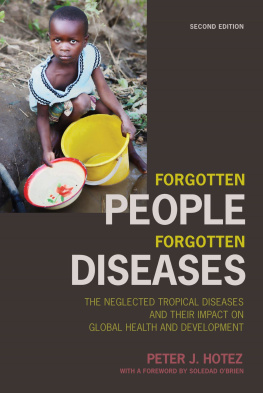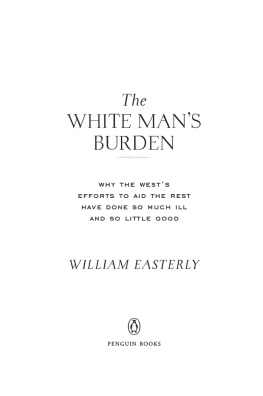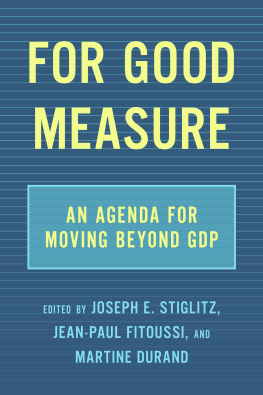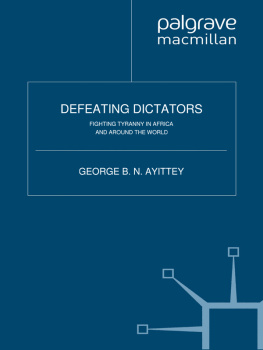William Easterly - The Tyranny of Experts: Economists, Dictators, and the Forgotten Rights of the Poor
Here you can read online William Easterly - The Tyranny of Experts: Economists, Dictators, and the Forgotten Rights of the Poor full text of the book (entire story) in english for free. Download pdf and epub, get meaning, cover and reviews about this ebook. year: 2013, publisher: Basic Books, genre: Politics. Description of the work, (preface) as well as reviews are available. Best literature library LitArk.com created for fans of good reading and offers a wide selection of genres:
Romance novel
Science fiction
Adventure
Detective
Science
History
Home and family
Prose
Art
Politics
Computer
Non-fiction
Religion
Business
Children
Humor
Choose a favorite category and find really read worthwhile books. Enjoy immersion in the world of imagination, feel the emotions of the characters or learn something new for yourself, make an fascinating discovery.
- Book:The Tyranny of Experts: Economists, Dictators, and the Forgotten Rights of the Poor
- Author:
- Publisher:Basic Books
- Genre:
- Year:2013
- Rating:3 / 5
- Favourites:Add to favourites
- Your mark:
- 60
- 1
- 2
- 3
- 4
- 5
The Tyranny of Experts: Economists, Dictators, and the Forgotten Rights of the Poor: summary, description and annotation
We offer to read an annotation, description, summary or preface (depends on what the author of the book "The Tyranny of Experts: Economists, Dictators, and the Forgotten Rights of the Poor" wrote himself). If you haven't found the necessary information about the book — write in the comments, we will try to find it.
William Easterly: author's other books
Who wrote The Tyranny of Experts: Economists, Dictators, and the Forgotten Rights of the Poor? Find out the surname, the name of the author of the book and a list of all author's works by series.
The Tyranny of Experts: Economists, Dictators, and the Forgotten Rights of the Poor — read online for free the complete book (whole text) full work
Below is the text of the book, divided by pages. System saving the place of the last page read, allows you to conveniently read the book "The Tyranny of Experts: Economists, Dictators, and the Forgotten Rights of the Poor" online for free, without having to search again every time where you left off. Put a bookmark, and you can go to the page where you finished reading at any time.
Font size:
Interval:
Bookmark:
THE TYRANNY OF EXPERTS
ALSO BY WILLIAM EASTERLY
The White Mans Burden
The Elusive Quest for Growth

Copyright 2013 by William Easterly
Published by Basic Books,
A Member of the Perseus Books Group
All rights reserved. No part of this book may be reproduced in any manner whatsoever without written permission except in the case of brief quotations embodied in critical articles and reviews. For information, address Basic Books, 250 West 57 th Street, New York, NY 10107.
Books published by Basic Books are available at special discounts for bulk purchases in the United States by corporations, institutions, and other organizations. For more information, please contact the Special Markets Department at the Perseus Books Group, 2300 Chestnut Street, Suite 200, Philadelphia, PA 19103, or call (800) 8104145, ext. 5000, or e-mail .
A CIP catalog record for this book is available from the Library of Congress.
ISBN: 978-0-465-08090-8
10 9 8 7 6 5 4 3 2 1
To Lizzie
TABLE OF CONTENTS
THE TYRANNY OF EXPERTS
The farmers in Wood County in rural northwest Ohio never saw it coming. The soldiers had arrived on the morning of Sunday, February 28, 2010, while the farmers were in church. Hearing gunshots, the farmers had rushed to their houses, which by then were already immersed in flames. While some soldiers kept the farmers at gunpoint from rescuing their homes, others poured gasoline over the recent grain harvest in the barns and burned that as well. One eight-year-old child was trapped and died in the fire. The dairy cows were dispatched more quickly and humanely with a burst of machine-gun fire. Then the soldiers marched the more than 20,000 farmers away at riflepoint. Never come back, they were told; the land is no longer yours.
The farmers, many of whose homesteads had been in their families for generations, were unhappy to learn that a British company was taking their land with the help of the soldiers. The company was going to grow forests and then sell the timber. The farmers were even more distressed to learn that the World Bank, an official international organization combating global poverty, had financed and promoted the project by the British company. The World Bank is not subject to Ohio or United States law or courts.
The farmers might have hoped that publicity would help them. And indeed, a year later a British human-rights organization, Oxfam, published a report on what had happened in Wood County in February 2010. The New York Times ran a story on the report on September 21, 2011. The World Bank the next day promised an investigation. That investigation has never happened.
As of this writing, now past the fourth anniversary of the tragedy, the whole event has been forgotten by almost everyone except the victims. The farmers could only wonder why nobody seemed to care.
T HE R IGHTS OF THE R ICH AND P OOR
Is this story really true? It is true except for one geographic detailthe events did not occur in Wood County, Ohio; they occurred in Mubende District, Uganda. The World Bank had promoted the forestry project there to raise incomes, but those whose rights the Bank had overlooked would not be among the beneficiaries. It is inconceivable that the story above could have occurred in Ohio. If it had, there would have been an outcry that produced justice for the victims and punishment for the perpetrators.
When Thomas Jefferson wrote the worlds most famous statement of political ideals in 1776, he listed outrages of the king of England against his American subjects: He has plundered our seas, ravaged our Coasts, burnt our towns, and destroyed the lives of our people. The following words were meant to prevent such outrages:
We hold these truths to be self-evident, that all men are created equal, that they are endowed by their Creator with certain unalienable Rights, that among these are Life, Liberty and the pursuit of Happiness. That to secure these rights, Governments are instituted among Men, deriving their just powers from the consent of the governed.Similar ideals would be repeated in other Western nations. For example, the Declaration of the Rights of Man, approved by the revolutionary French National Assembly on August 26, 1789, aimed
to set forth in a solemn declaration the natural, unalienable, and sacred rights of man.... Men are born and remain free and equal in rights.... Liberty consists in the freedom to do everything which injures no one else.These aspirations for freedom were those of poor people. The French in 1789 and Americans in 1776 were at an average income per person roughly similar to that of Africans today. The World Bank is based in the West and has many managers and staff who personally share in this dream. But the World Bank does not articulate such a dream for the world they cover, the world that at various times has been called the Third World or the less-developed countries.
The World Bank can hardly avoid some discussion of the nature of government in development, and they have been preparing reports on this topicwhat they have vaguely called governance for years now. One recent version is a 2007 World Bank report on governance that says:
Implementing the strengthened approach to governance... will require... careful development of a... detailed results framework, consideration of budget and staffing implications... and further consultations with stakeholders.... The specific initiatives needed to fully operationalize this strategy will be outlined in an Implementation Plan.The following concepts play little or no role in the strengthened approach to governance: liberty, freedom, equality, rights, or democracy. These omissions are not accidents; they are part of a long pattern in World Bank reports. Questioned about the remarkably consistent omission of the word democracy from World Bank official reports and speeches, for example, the World Bank Press Office explained to this author that the World Bank is legally not allowed by its own charter to use the word democracy. We will retrace the revealing history behind this strange and important claim back to the 1940s.
The lack of commitment to such ideals is exemplified by the World Banks successful evasion of any responsibility for burning down the homes of poor farmers. It is further exemplified by its linguistic evasion, such as a strengthened approach to governance complete with its consideration of budget and staffing implications. The farmers in Mubende, Uganda, have reason to doubt whether they are included among the men [who] are born and remain free and equal in rights.
T HE T ECHNOCRATIC I LLUSION
The conventional approach to economic development, to making poor countries rich, is based on a technocratic illusion: the belief that poverty is a purely technical problem amenable to such technical solutions as fertilizers, antibiotics, or nutritional supplements. We see this in the Banks actions in Mubende; we will see the same belief prevalent amongst others who combat global poverty, such as the Gates Foundation, the United Nations, and US and UK aid agencies.
The technocratic approach ignores what this book will establish as the real cause of povertythe unchecked power of the state against poor people without rights. In Mubende, Uganda, for example, the techniques of improved forestry offered a solution to poverty. But it was not a solution for the Mubende farmers. The illusion that the problem was technical only distracted attention from the soldiers and World Banks violations of the rights of the farmers.
By this technocratic illusion, the technical experts unintentionally confer new powers and legitimacy on the state as the entity that will implement the technical solutions. The economists who advocate the technocratic approach have a terrible navet about powerthat as restraints on power are loosened or even removed, that same power will remain benevolent of its own accord.
Next pageFont size:
Interval:
Bookmark:
Similar books «The Tyranny of Experts: Economists, Dictators, and the Forgotten Rights of the Poor»
Look at similar books to The Tyranny of Experts: Economists, Dictators, and the Forgotten Rights of the Poor. We have selected literature similar in name and meaning in the hope of providing readers with more options to find new, interesting, not yet read works.
Discussion, reviews of the book The Tyranny of Experts: Economists, Dictators, and the Forgotten Rights of the Poor and just readers' own opinions. Leave your comments, write what you think about the work, its meaning or the main characters. Specify what exactly you liked and what you didn't like, and why you think so.

